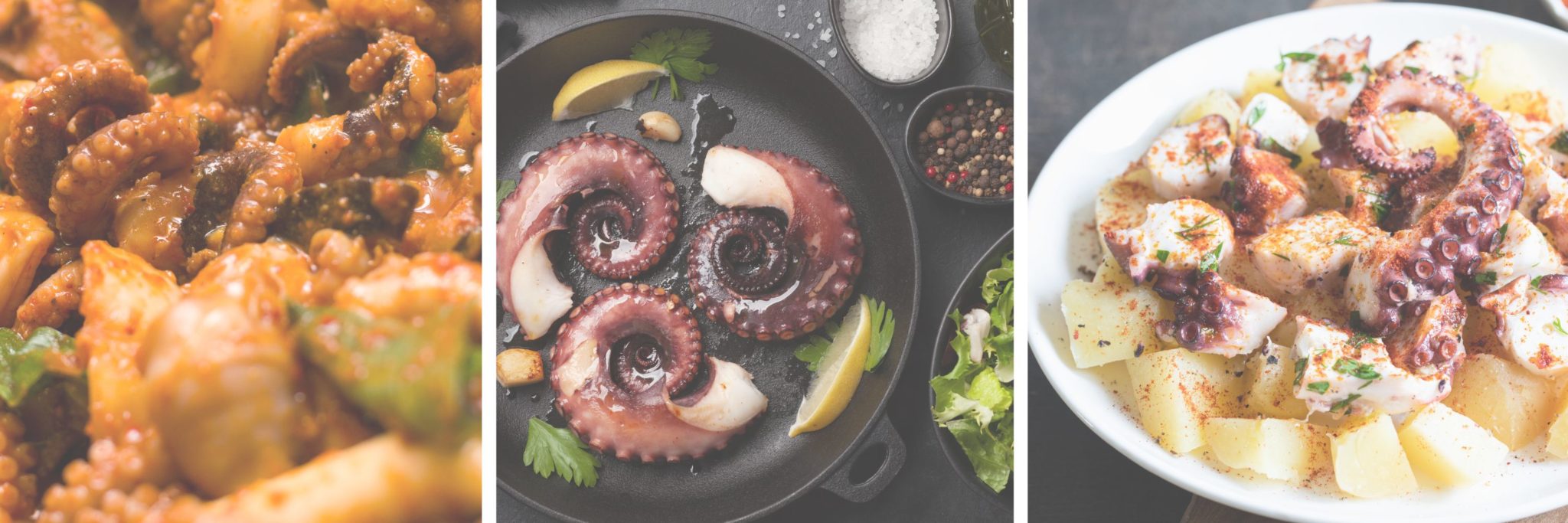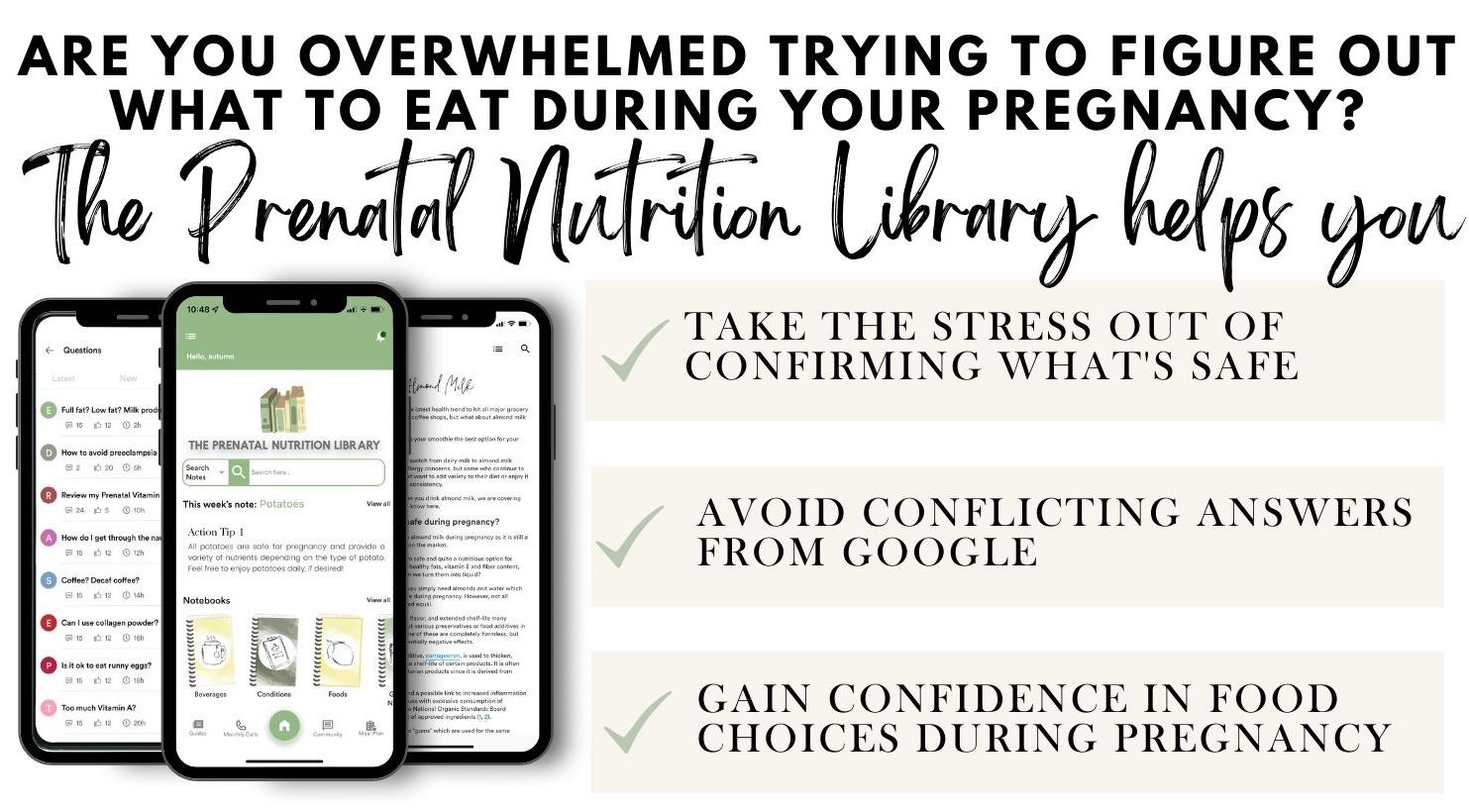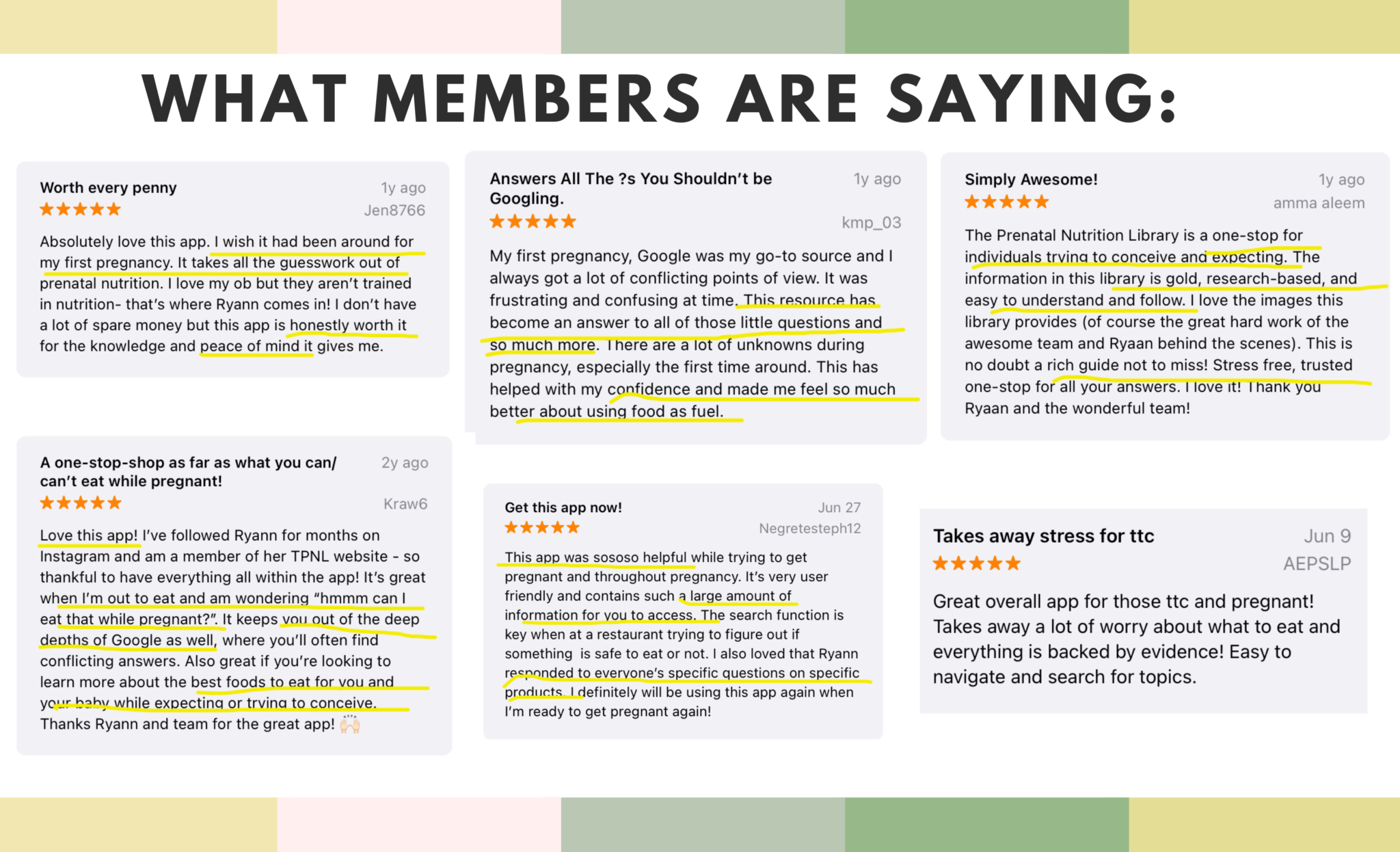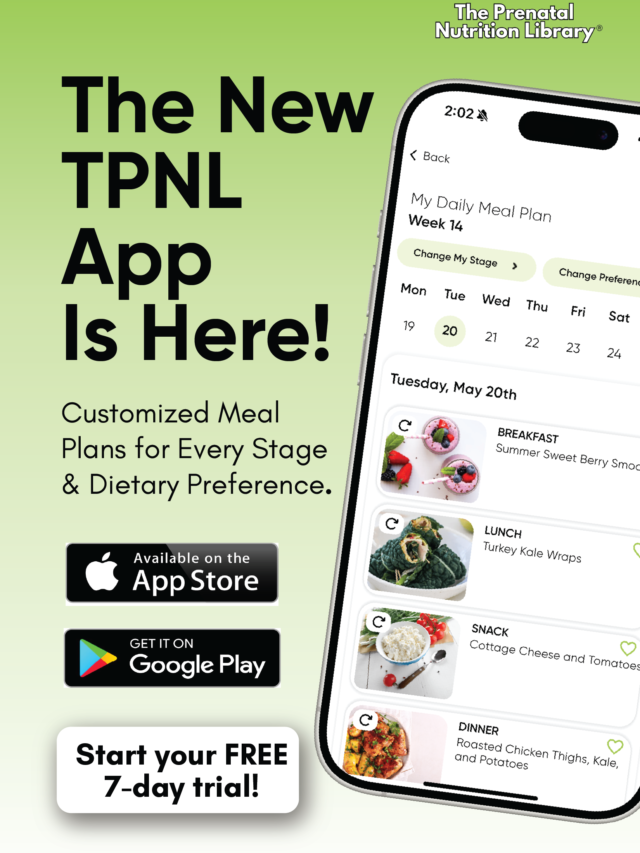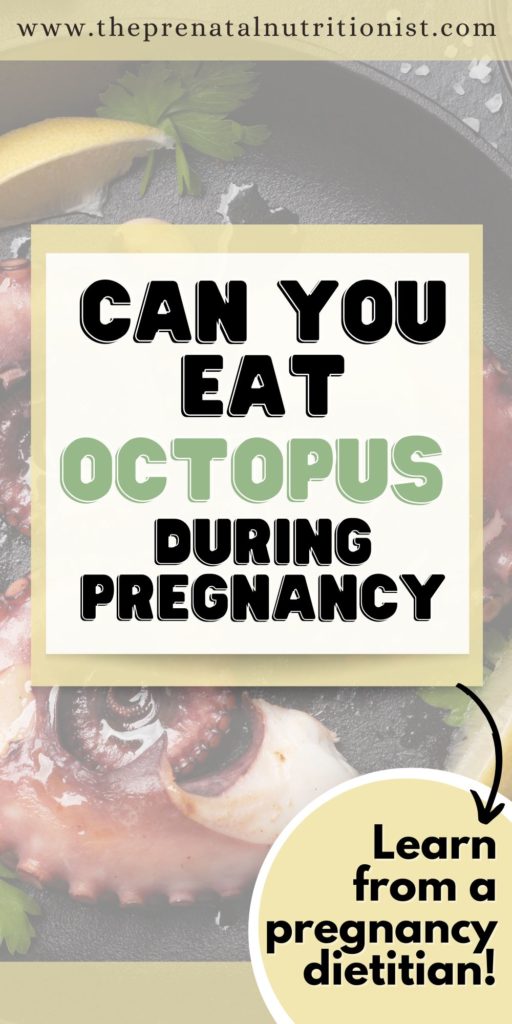
We all know that eating a well-balanced, nutrient-rich diet during pregnancy is crucial for both you and your growing little one. But with so many different myths and outdated information out there, it can get pretty confusing to figure out what’s safe to eat and what should be left untouched.
One area that seems to spark many questions is seafood. The ocean has SO MANY options, from salmon to shrimp to tuna. And while some seafood choices are an obvious yes (hello, low-mercury omega-3-packed fatty fish!), others leave you second-guessing yourself.
Which brings me to our focus for today: the mighty octopus. This eight-legged sea creature with a chewy texture is a culinary delicacy in many cultures, but can pregnant ladies indulge?? After all, expectant moms are often told to be cautious about seafood choices during pregnancy.
Keep reading as I break down everything you need to know about this sea creature so you can decide whether to add octopus to your pregnancy menu.
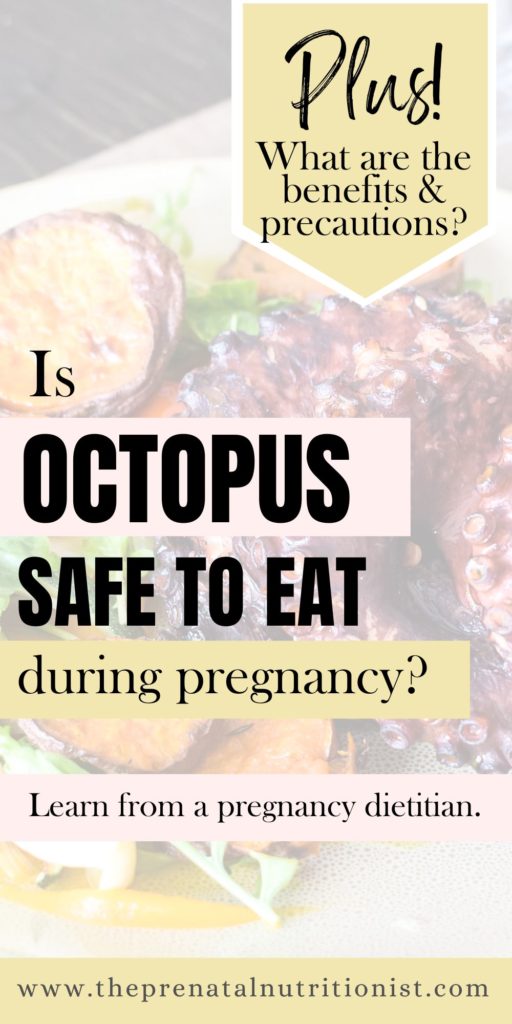
Can Pregnant Women Eat Octopus?
Let’s get one thing straight first about the octopus. This little sea creature may live in the ocean but is not a fish. It gets filed under the “shellfish” category even though it doesn’t actually have that classic shell. Octopus is a part of the mollusk family, meaning it is cousins with clams, oysters, and mussels.
When it comes to adding seafood to your pregnancy diet, choosing the right types is important. The FDA has called out big kahunas like sharks, swordfish, king mackerel, and tilefish as no-gos because they can pack high levels of mercury, which can be dangerous for your little one’s development.
Meanwhile, octopus is okay during pregnancy if it is fully cooked. Depending on the source, it may have low to moderate levels of mercury. It’s stacked with all kinds of good-for-you nutrients, like essential amino acids, heart-healthy omega-3 fatty acids, and important vitamins and minerals like iron, potassium, and vitamin B12.
On the other hand, you should steer clear of octopus carpaccio, octo-salads, any kind of raw tentacle action, octopus salad, raw octopus, and marinated or pickled octopus dishes.
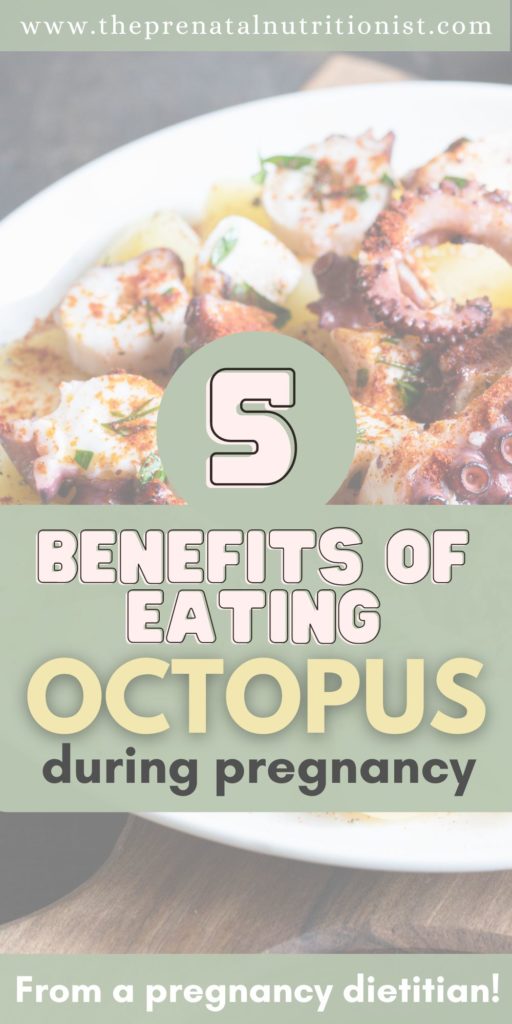
Benefits of Eating Octopus During Pregnancy
Let’s take a closer look at some of the key ways octopus can be beneficial to you and your baby:
Supports Cardiac Health
Octopus is loaded with omega-3s, which can help support heart health during pregnancy. Omega-3, particularly DHA (docosahexaenoic acid), is also crucial for brain and eye development in the baby.
Good Source of Zinc
Octopus is a good source of zinc, an essential mineral that supports the immune system and aids in cell growth and development. During pregnancy, zinc plays a crucial role in fetal growth, DNA synthesis, and overall immune function, making octopus a beneficial addition to a pregnant woman’s diet.
Rich in Protein
Octopus is an excellent source of high-quality protein. This is essential for the growth and development of the baby during pregnancy. Protein aids in the formation of new cells, tissues, and organs, supporting the overall health of both the mother and the fetus. It literally provides the building blocks for your baby!
Helps Prevent Iron-Deficiency Anemia
Iron deficiency is common during pregnancy and can lead to complications such as anemia. Octopus is a good source of iron, which is necessary for producing hemoglobin. Hemoglobin carries oxygen to the body’s cells, ensuring the mother and the baby receive an adequate oxygen.
Helps Reduce the Risk of Birth Defects
Octopus is an excellent source of vitamin B12, a crucial nutrient to help prevent neural tube defects like spina bifida and anencephaly in babies. Getting adequate B12 combats pregnancy anemia and helps ensure your little one’s neural tube forms properly in those critical early weeks.
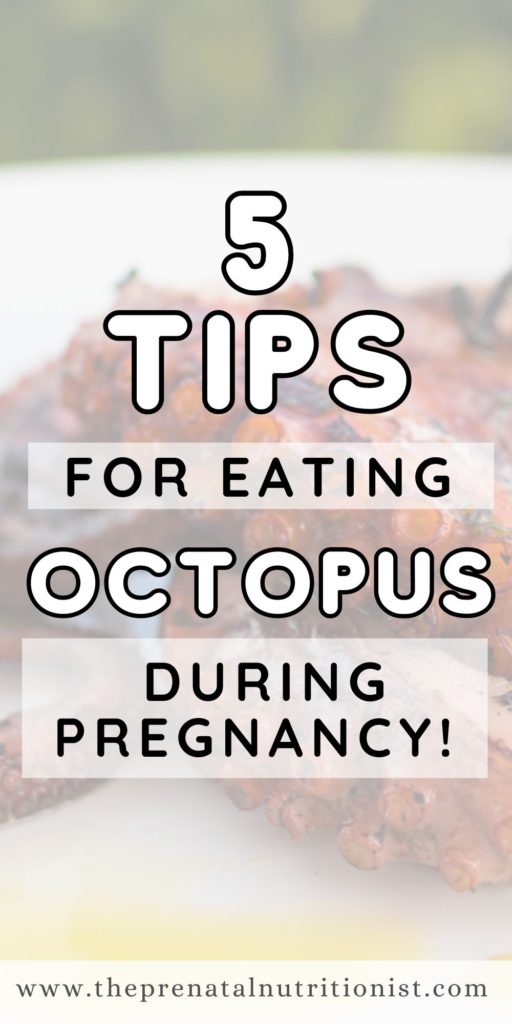
Safety Tips for Eating Octopus While Pregnant
Below are some things to look out for to be safe when adding octopus to your menu:
Proper Cooking
When consuming any seafood while pregnant, it must not be served raw. Consuming raw shellfish greatly increases the risk of foodborne illness. Potentially harmful bacteria, viruses, and parasites can put you and your baby at risk if the octopus isn’t cooked properly. The FDA recommends that boiled octopus and other shellfish be prepared at an internal temperature of at least 145°F to kill lingering germs.
Buy from Reputable Sources
You should also be picky about where you get your octopus. Reputable grocery stores, high-quality fish markets, or restaurants with strict food safety standards are key.
Moderation is Key
As with most things in food and nutrition, moderation is key! Regarding octopuses, moderation is still the name of the game for a healthy pregnancy diet. The FDA recommendation to cap your weekly intake at around 12 ounces of low-mercury fish and shellfish may be too conservative.
However, octopus falls in the low to moderate mercury range, and limiting moderate mercury choices to up to once per week is best. Choose mostly low mercury choices during pregnancy.
Watch Out for Allergies
Since octopuses belong to the shellfish family, you should be cautious if you have any known allergies.
Consider Mercury Levels
Octopus is considered low to moderate in mercury compared to some bigger fish. If you enjoy it, include it in moderation and plenty of other low-mercury seafood choices.
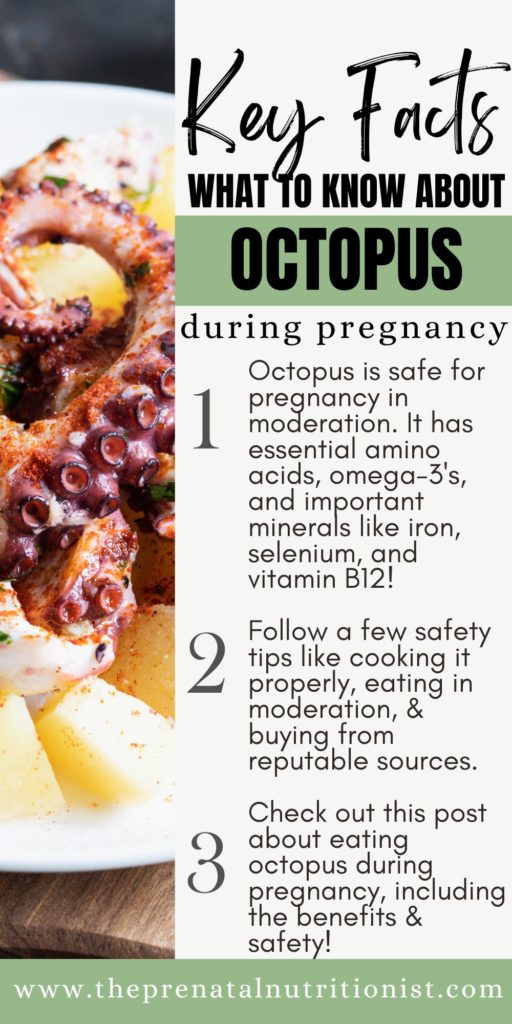
Low-mercury seafood is a great option to nourish mom and baby during pregnancy.
Making informed food choices during those nine months can feel overwhelming, especially when drowning in conflicting advice and outdated tips from well-meaning friends and relatives. That’s where having a trusted resource like The Prenatal Nutrition Library (TPNL) on your team can be a total game-changer.
At TPNL, our mission is to be your nutrition guide, providing real, evidence-based guidance you can trust. We’ll explain which foods are safe and which to avoid. We’ll also provide balanced, nutrient-packed meal plans made specifically for you and your little one.
You can kickstart your “nourishment for two” journey today by downloading our Free 1-Week Sample Meal Plan. It’s the perfect little taste of how delicious and energizing your pregnancy diet can be with the right plan by your side.
No more second-guessing or stressing over every bite, just nourishing meals that will have you and your baby thriving.


